Meet the top FT 20 in-house legal leaders

Roula Khalaf, Editor of the FT, selects her favourite stories in this weekly newsletter.
In the past few months the Business Legal Leaders series has addressed various challenges facing in-house lawyers. Among them, geopolitical uncertainty, protecting their businesses from potential cyber attacks, and navigating evolving environmental, social and governance-related regulations.
The impact of developments in generative AI is at the front of general counsels’ minds too, as they wrestle with the implications of the technology for their businesses, legal teams and the law firms they work with.
The 20 in-house legal leaders featured below were selected by the FT’s Innovative Lawyers research partner, RSGI.
Some are recognised for reorganising their legal teams in response to the changing needs of their businesses; others have supported business strategy. All have made an important contribution in helping their organisations respond to a wide range of business challenges.
Tom Saunders, content director, RSGI
Profiles compiled by RSGI and FT editors; listed by company name in alphabetical order.
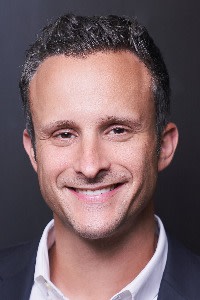
Joel Unruch
General counsel and corporate secretary, Accenture
Over the past 18 months, Joel Unruch’s priority at Accenture has been preparing the business for generative AI’s impact. He worked closely with senior colleagues from across Accenture’s AI teams to identify and categorise the potential uses of this technology in the business and also to mitigate its risks.
Unruch says this has developed into an AI compliance programme taken as seriously as the company’s antitrust and anti-money laundering programmes, which is reported to the board. The team is currently testing the technology by using a chatbot for employees to query company policies, and proofs of concept are being developed for the draft and review of contracts. These internal developments have helped Accenture to advise clients on their own use of AI.
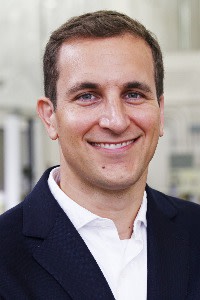
Brian Israel
General counsel, Anthropic
From oceans to space to generative AI, Brian Israel has had a legal career at the frontiers of human exploration. At artificial intelligence company Anthropic, which recently raised $450mn to develop its chatbot Claude — a rival to Open AI’s ChatGPT — he runs a team of eight, who create agreements with major corporate backers and clients that plan to use the company’s services.
Before joining Anthropic last October, Israel worked as associate general counsel at US space agency Nasa, and prior to that as general counsel at now-defunct asteroid mining company Planetary Resources, including when it was acquired by blockchain company ConsenSys in 2018.
Before that, he spent more than seven years at the US state department, including a five-year stint as attorney-adviser for oceans and international environmental and scientific affairs.
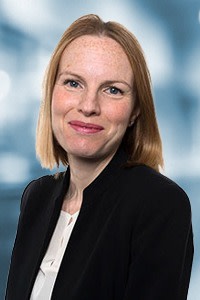
Sonya Branch
Executive director and general counsel, Bank of England
Since becoming general counsel in 2015, Sonya Branch has led her team of around 200 lawyers supporting the central bank in response to several crises. Recent examples include its £65bn bond-buying programme to stem financial instability in the wake of then UK chancellor Kwasi Kwarteng’s mini Budget in September 2022 and the collapse of Silicon Valley Bank. The team is also involved in developing the legal framework for a central bank digital pound.
To help develop flexibility and a broader range of skills needed to cope with the unpredictable nature of the BoE’s legal work, Branch has organised reciprocal secondments between her team and the legal teams at the Financial Conduct Authority, Treasury, Foreign Office, and European Central Bank, among others, to expose them to as many different types of work as possible.
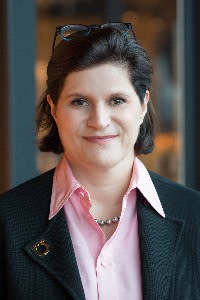
Ulrike Schwarz-Runer
Managing director and senior partner, global general counsel, Boston Consulting Group
Ulrike Schwarz-Runer has created three specialised groups, known as “squads”, within the legal team, to help meet the increasingly broad and unpredictable demands of the business. One group aims to develop legal expertise quickly in specific areas, such as generative AI, before another shares this knowledge with the wider legal team. A final group looks at improving how the legal team works, such as through training and development.
Schwarz-Runer says organising the team this way allows lawyers to share knowledge as quickly as possible across the 60-plus different jurisdictions the consultancy operates in. She says the model is helping her team tackle legal problems that external law firms might be unable to.
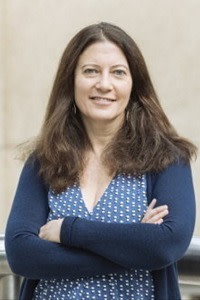
Sabine Chalmers
General counsel, director of regulatory affairs and company secretary, BT
One of Sabine Chalmers’s priorities at the UK telecommunications company has been improving diversity in the legal team and among external law firms the business works with.
The legal team is working closely with BT’s chief inclusion, equity and diversity officer to provide managers with appropriate employee data (gender, ethnicity and disability) to help ensure fair treatment, and managers’ bonuses are linked to diversity and inclusion targets.
Every three years, the team also reviews the roster of key external law firms, and the firm that has made the most progress on its diversity and inclusion targets over the period is credited towards reappointment. The external firms are also assessed on their understanding of and willingness to use AI — and invited to present their proposals of how it will change the services they provide to BT — to ensure they are keeping pace with the latest technology developments.
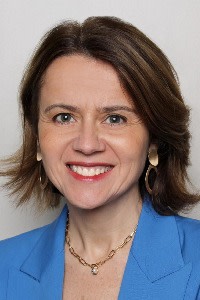
Maria Pernas
Group general counsel, Capgemini
Since 2022, Maria Pernas has added three new “centres of excellence” to enhance legal support at the French IT services group. These centres focus on critical challenges facing the business: sustainability, AI and regulation.
She says hiring an export control and sanctions lawyer in 2018 was one of her best decisions, as it has put her team in a good position to advise on the geopolitical uncertainty of the past few years.
The regulatory centre helped navigate the challenges in developing Bleu, a joint venture with French telecommunications company Orange. Scheduled to launch in 2024, Bleu will offer cloud services that will meet the strict privacy and security requirements of the French state.
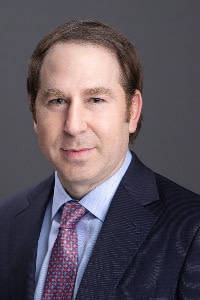
Sean Markowitz
Chief legal officer and corporate secretary, Cheniere Energy
Sean Markowitz started his role as general counsel at Cheniere in 2015 following a shareholder revolt against its founder, supporting the company’s turnaround under new management and successful growth of the liquefied natural gas supplier over the past seven years.
During this time, Cheniere has profited from the US domestic shale gas revolution that has converted the country from a gas importer to a leading LNG exporter.
Markowitz and his team have helped create contracts that have enabled its supplier base of natural gas producers in North America to sell at potentially higher global prices than previously available on the domestic market.
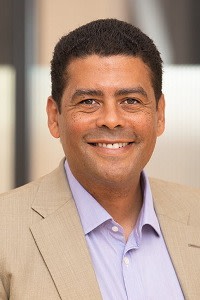
Tom Shropshire
General counsel and company secretary, Diageo
On arriving at Diageo in 2021, Tom Shropshire found that while there was deep experience across the drinks company’s 250-person global legal team, it was very compartmentalised. He has since reorganised it into five groups, known as “ecosystems”, to encourage closer collaboration.
One example is the brands, innovation and commerce grouping, which Shropshire says has helped the business get ahead of the latest developments in generative AI, which Diageo is currently using to accelerate packaging design and in consumer engagement. The team quickly identified ways to use the technology across Diageo, and has rolled out guidance for the company’s marketing and innovation departments on its use, including updated procurement processes to support the recruitment of technology suppliers.
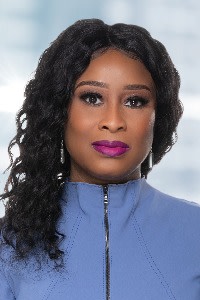
LaTanya Langley
Chief legal officer and company secretary, Edgewell Personal Care
LaTanya Langley learnt to be comfortable taking risks in previous roles as an in-house lawyer at drinks company Diageo, and razor and pen-maker Bic, where she advised on developing markets. Now, she draws on this experience to help the lawyers in her team at Edgewell to identify and take chances they might previously have forgone.
She took up her role at Edgewell, the razor and sun cream maker, in early 2022. Since then, she has fostered stronger relationships between the legal team and the wider business and been key to making the department more accepting of risk and more understanding of the perspectives of business colleagues.
At the same time, Langley encourages her team to be alert to the longer-term risks affecting the business, such as potential cyber attacks and corporate reputation. The legal team is working closely with the IT department to develop a culture and policy around AI use.

Anat Hakim
General counsel and company secretary, Eli Lilly and Company
When Anat Hakim joined the US drugmaker in early 2020, it was in the process of rebuilding; the patents on many of its top-selling drugs were expiring and the company was doubling down on research and development, including new treatments for Alzheimer’s and obesity.
Hakim says this shift in focus has required a change in attitude in the approximately 240-person legal team and structural changes to improve how it collaborates with other parts of the business. Litigation, regulatory and transactional teams now report to her, for example, and in some cases intellectual property lawyers have moved to sit with scientists in the company’s research and development function to help assess and commercialise treatment pipelines.
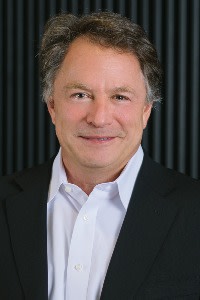
Sean Martin
Chief legal officer and general counsel, Generate Biomedicines
Sean Martin and his legal team are helping the biotech start-up develop new treatments at speed.
The business, which currently has its first drug in clinical trials, is using artificial intelligence, machine learning and other technologies to make the drug development process faster. Martin says that discovery phases that would usually take around four years have taken Generate 16 months. To support this, the legal team has developed guidelines to protect the business’s intellectual property while allowing colleagues across the company to take advantage of these new technologies.
Martin and the legal team have played a crucial role in negotiating partnership deals with businesses such as biotech company Amgen, which involves Amgen paying $50mn upfront to fund discovery and creation of protein therapeutics.
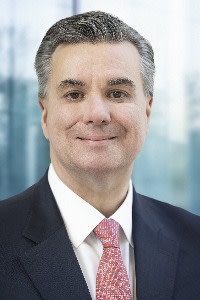
James Ford
Senior vice-president and general counsel, GSK
Leading GSK’s divestment of its consumer health business has dominated the past two years of James Ford’s professional life, in terms of both the transaction itself and the organisational reset it required of the UK-listed drugmaker’s legal team.
The work covered more than 70 countries and involved forming the new company, Haleon — a joint venture with US pharmaceutical company Pfizer — and listing it on the London Stock Exchange in July 2022. The legal team worked across operations, branding and regulatory approvals, to ensure that GSK and Haleon could function as separate entities from day one.
The legal team’s performance targets are tied to those of the company and lawyers are assessed on how they contribute to the business’s strategy and objectives. Since the split, the focus of Ford’s work has shifted in line with GSK’s emphasis on medicines and vaccines.
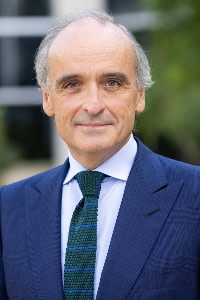
Santiago Martinez Garrido
Secretary-general and general counsel, Iberdrola
When Santiago Martínez Garrido became the Spanish energy group’s secretary-general and general counsel at the start of the year, he set up a legal innovation centre, where lawyers in his team can obtain accredited in-house masters degrees in energy law alongside training in operations, legal tech and project management. The centre also runs collaboration days with the legal teams of other Spanish companies, such as telecommunications business Telefónica and Banco Santander.
Martínez Garrido, who previously held several senior roles in the legal team, aims to foster a sense of purpose in his lawyers and sees the team’s joint pro bono programme with several law firms, including Clifford Chance and Baker McKenzie, as a way to increase motivation, giving Iberdrola’s lawyers exposure to more complex and challenging pro bono work.
The programme has provided legal support to children and young people’s charities Fundación Integra, Save the Children and Asociación Nuevo Futuro Sirio. It was also the first company in Spain to join the Fundación Pro Bono España, a network of legal professionals offering services to charities and campaigners.

Amanda Gerrity
General counsel, Octopus Energy
Amanda Gerrity has prioritised supporting business growth at the UK energy company while keeping her legal team to a lean four people in the UK. Previously head of legal at French power utility EDF, she joined Octopus in 2020 when it was a fraction of the size it is today.
While Gerrity had industry experience, she was less familiar with mergers and acquisitions. But she quickly found herself advising on several deals, most significantly the acquisition and integration of 1.5mn customers inherited from rival provider Bulb, which collapsed in 2021.
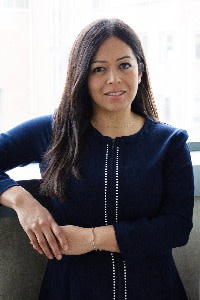
Nadia Hoosen
Chief legal officer and group company secretary, OneWeb
Nadia Hoosen joined the British satellite internet company OneWeb in 2021, a year after it was rescued from bankruptcy by the UK government and telecoms company Bharti Global.
In 2022, she advised the business through a tumultuous period. Days after Russia invaded Ukraine, OneWeb was forced to suspend satellite launches from a Russia-owned site in Kazakhstan, throwing into doubt its plans to roll out a global internet service. Hoosen and the legal team at OneWeb helped secure new launch sites in the US and India by gaining regulatory approval and negotiating contracts significantly faster than normal.
Over the past year, Hoosen’s legal team estimates, it has executed five rocket launch contracts, more than $1bn in committed revenue deals and expanded the business’s low-orbit operations in 55 countries. The team has also advised on OneWeb’s ongoing merger with French satellite group Eutelsat, expected to be completed shortly, after securing regulatory clearances.
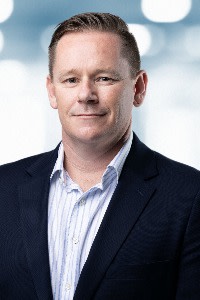
Craig Emery
Head of the legal chapter and chief compliance officer, Telstra
Unlike other legal leaders in this list, Craig Emery says his core responsibility as “head of the legal chapter” at the Australian telecoms company, is less about giving technical legal advice, but rather to manage people, focusing on pastoral care, managing pay, career development and talent.
Last year Emery reorganised the 130-strong legal team into groups dubbed “missions”, which support the business by giving legal advice in areas such as employment and litigation, and on specific projects, including the reorganisation of Telstra’s business in 2022.
The groupings are reviewed quarterly with the business, to identify what new missions are required and which can be wound down. The structure allows the legal team to adapt as new priorities arise and ensures that matters are sufficiently resourced according to demand.

Lance Bartholomeusz
General counsel, UNHCR
Lance Bartholomeusz has led a team of around 25 lawyers since 2016 who are involved in various projects at the United Nations’ refugee agency. In this role, he directs the legal team’s support of an aid agency that currently is dealing with tens of millions of people displaced by war and conflict in places including Ukraine, Afghanistan, Rohingya, Horn of Africa, Syria and Yemen, with a total budget of $10.7bn for 2022.
Bartholomeusz previously spent 12 years in leadership positions at UNRWA, the United Nations Relief and Works Agency for Palestine Refugees — historically one of the agency’s biggest and most intractable projects.
His team has recently provided support for efforts inside and outside Ukraine to displaced people — including a pilot scheme to deliver funds to refugees through blockchain-based transfer of funds.
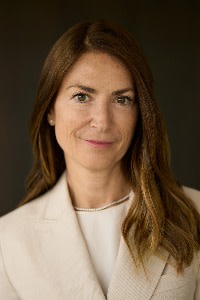
Maria Varsellona
Chief legal officer and company secretary, Unilever
Maria Varsellona is leading a transformation of the consumer products group’s legal team, in line with the company’s recent restructuring into five business groups, which range from beauty and wellbeing to ice cream.
Each business line now has its own general counsel, with lawyers spread across the territories where Unilever operates. Varsellona is also overseeing the establishment of three “powerhouses” in Mexico City, Bangalore and Barcelona, which will provide legal and administrative support to the company’s teams globally. The idea draws on her experience trialling something similar when she worked at telecoms equipment maker Nokia.
The difference this time is that the legal team can take full advantage of the latest advancements in generative AI, which Varsellona hopes will be able to take on some basic legal tasks.
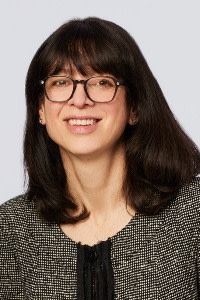
Joli Gross
General counsel, corporate secretary and chief sustainability officer, United Rentals
Throughout her 21-year career at the world’s largest equipment rental company, Joli Gross’s role has continued to expand, supporting the business in its rapid growth through acquisitions.
The legal team advised the business on its acquisitions of equipment rental companies Ahern and Able Equipment in 2022 and 2023 respectively. Over the past decade, the company has established a market-leading position and multiplied its market capitalisation from just over $5bn a decade ago to about $31bn today.
Gross also led on developing the business’s corporate social responsibility commitments, reflecting its expanded headcount and evolving environmental, social and governance commitments.

Kari Hietanen
EVP, corporate relations and legal affairs, Wartsila
Kari Hietanen has a broad role at the Finnish marine engine manufacturer, which includes overseeing legal, corporate affairs, cyber security and the company’s sustainability strategy.
Over the past 10 years, sustainability has become a core part of the company’s strategy as the maritime industry faces growing pressure to decarbonise, and is an increasingly important part of Hietanen’s role.
As well as a risk and compliance issue, Hietanen sees sustainability as an opportunity for Wartsila, which advises shipping clients on how to switch to carbon-saving technologies. The legal team is supporting the company’s research and development into carbon neutral fuels by creating the contractual structure for new products and services such as its decarbonisation consulting services.

Comments